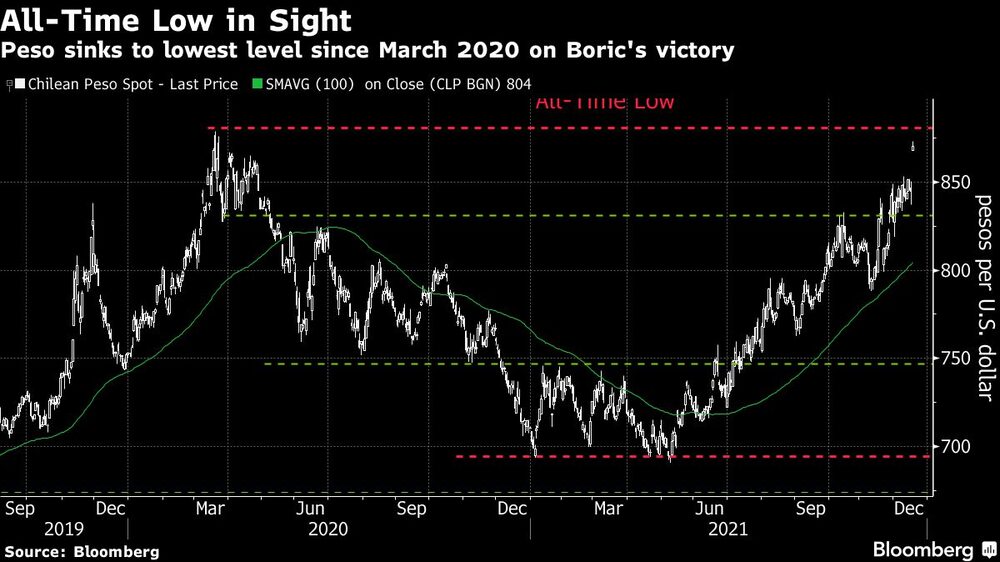Bloomberg — Chilean assets tumbled after left-wing candidate Gabriel Boric rolled to a blowout victory in Sunday’s presidential election, giving him a broad mandate to push ahead with an overhaul of Latin America’s most open economy.
The peso sank 3% to a 21-month low of 871.46 per dollar in early trading, extending its losses this year to 18.2%, one of the worst routs in the world. The government’s dollar-bond yields jumped and the iShares MSCI Chile ETF plunged 7.7% in premarket trading in New York. The Santiago stock market fell 5% at open.
“Market prices had not incorporated that Boric could win with such a wide margin and such a high turnout,” Hugo Osorio, deputy manager of investment strategy at Falcom Asset Management, said Sunday.

Boric, a lower house deputy who rose to fame as a student leader, won 56% of the vote while his conservative rival Jose Antonio Kast took 44% in a second round that just days ago had looked too close to call.
Chileans turned out en masse to vote Sunday, with more than 8.3 million casting ballots, the highest turnout since the return of democracy in 1990.
Boric ran as the candidate of the Apruebo Dignidad coalition, which included a variety of left-wing parties including the communists.
“This is the worst scenario that the market could assume, it was waiting for a much closer vote, a sign of a country open to dialogue,” said Klaus Kaempfe, director of portfolio solutions at Credicorp Capital.
After the first-round vote last month, Boric moderated his message to appeal to voters in the center. He reiterated in a speech Sunday that he will seek to maintain fiscal discipline and will negotiate with Congress to advance his reforms, which include raising taxes on the rich and mining industry, rejecting projects that damage the environment, improving social services and dismantling the country’s private pensions system.
Private pension funds, created in the 1980s during the dictatorship of Augusto Pinochet, have become a bulwark of the local capital markets. However, opponents say they have failed to provide decent pensions to retirees, and Chileans have been yanking money out of them throughout the pandemic.

